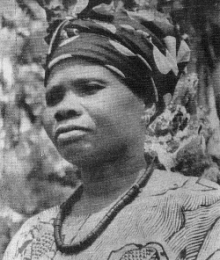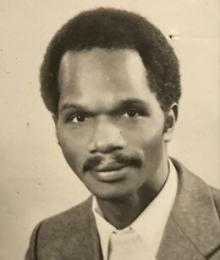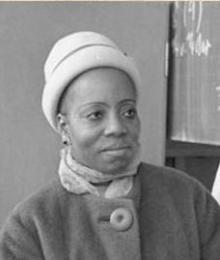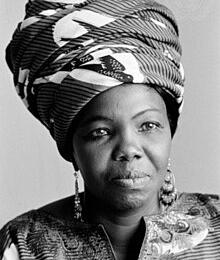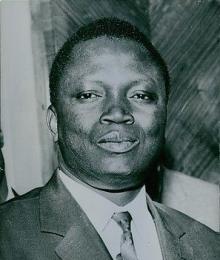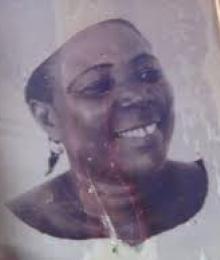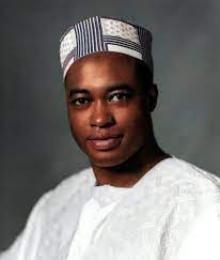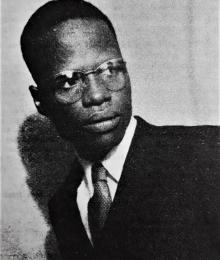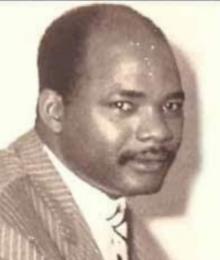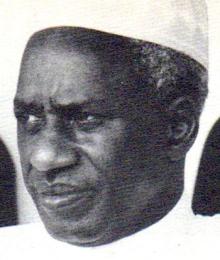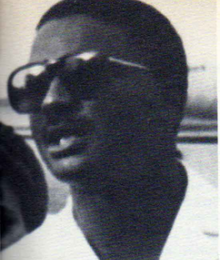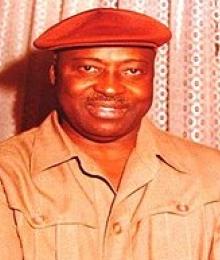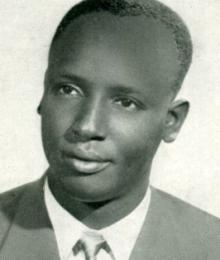
Diawadou Barry was a prominent political figure in Guinea, born on May 10, 1916, in Dabola and died on July 1, 1973, in Conakry. Descending from the prestigious Soriya lineage of Fouta-Djalon, he played a crucial role in Guinea's independence history. Educated at the École Normale William Ponty, Barry first served as a deputy in the French National Assembly from 1954 to 1958, before actively participating in Guinea's struggle for independence.
After independence, he held important ministerial positions, notably as Minister of National Education (1958-1961) and Finance (1961-1963), as well as serving as ambassador to Cairo. Despite his initial allegiance to Sékou Touré's regime, he was accused of conspiracy in 1969, arrested, and imprisoned at Camp Boiro, where he was reportedly executed in 1973. His journey illustrates the complexities and tragedies of Guinea's post-independence period.
Introduction
Diawadou Barry, born on May 10, 1916, in Dabola, French Guinea, and died on July 1, 1973, in Conakry, was a major political figure in Guinean history. Descending from the prestigious Soriya lineage of Fouta-Djalon, he played a crucial role in Guinea's struggle for independence and held key positions in the post-colonial government. His life illustrates the challenges and complexities of Guinea's transition to independence and the early years of nation-building.
Childhood and Education
Born into a noble family in Fouta-Djalon, Diawadou Barry was the eldest son of Almami Aguibou, a descendant of the Soriya branch of the former ruling dynasty of the Islamic confederation of Fouta-Djalon. This lineage granted him a high social status from an early age.
His education was marked by a blend of Islamic traditions and French colonial teaching. He attended the École Normale William Ponty near Dakar, Senegal, a prestigious institution that trained many African leaders of his generation. This education provided him with administrative skills and a deep understanding of the colonial system, while developing his keen political awareness.
Professional Career
After graduating from École William Ponty, Barry began a career in the colonial administration. He worked as an accountant for French West Africa (AOF), gaining valuable experience in financial and administrative management.
His career took a significant turn when he was elected to the French National Assembly, where he served from 1954 to 1958. This experience allowed him to develop his political skills and familiarize himself with the workings of power in Paris, while representing Guinea's interests.
Political Journey
Diawadou Barry's political journey was marked by his early involvement in Guinean political movements. As early as 1946, he became involved in the emerging political party system in Guinea. He played an active role in the Amicale Gilbert Vieillard (AGV), a Fula cultural association, and participated in its politicization.
In 1949, Barry contributed to the formation of the Guinean Entente Committee (CEG), of which he became vice-president. This platform aimed to unite the various ethnic and regional groups of Guinea. In 1955, he founded the African Bloc of Guinea (BAG) with Koumandia Keïta, aiming to counter the growing influence of Sékou Touré's Democratic Party of Guinea (PDG).
Struggle for Guinea's Independence
Barry's role in Guinea's struggle for independence was complex and sometimes ambiguous. Initially opposed to Sékou Touré's PDG, he eventually rallied to the cause of immediate independence during the 1958 referendum on the Constitution of the French Fifth Republic.
In February 1958, Barry formed the Guinean section of the African Regroupment Party (PRA) with Ibrahima Barry. Although initially critical of the PDG, the PRA-Guinea eventually allied with it to lead a joint campaign in favor of the "No" vote in the referendum, paving the way for Guinea's independence.
Minister
After Guinea's independence in 1958, Diawadou Barry held several important ministerial positions:
- Minister of National Education (1958-1961)
- Minister of Finance (1961-1963)
These appointments testify to the initial trust placed in him by Sékou Touré's regime, as well as his recognized skills in administration and financial management.
Subsequently, Barry was appointed Guinea's ambassador to Cairo from 1963 to 1966, strengthening the young nation's diplomatic ties with Egypt, a major player in the Non-Aligned Movement.
Arrest and Death
Despite his rallying to Sékou Touré's regime, Barry's loyalty was questioned over the years. The "Socialist Cultural Revolution" proclaimed in 1968 marked the beginning of a period of purges within the Guinean government.
In February 1969, Barry was accused of participating in the alleged "Labé plot" (or "Kaman-Fodéba plot") against Sékou Touré's regime. He was arrested on March 29, 1969, and imprisoned in the infamous Camp Boiro.
According to available information, Diawadou Barry was reportedly executed by firing squad at Camp Boiro on July 1, 1973, a victim of the political purges that marked this dark period in Guinean history.
Tribute
Despite his tragic end, Diawadou Barry's memory is honored in Guinea. Two educational institutions bear his name:
- The Dabola high school-college, in his hometown
- A primary school in Dixinn, a district of Conakry
These tributes testify to the recognition of his commitment to education and the development of Guinea.
Private Life
Although details of his private life are poorly documented, it is known that Diawadou Barry came from an influential family in Fouta-Djalon. His father, Almami Aguibou Barry, was canton chief of Dabola until the suppression of the administrative chieftaincy in 1957.
Barry's family life was also affected by political repression, as several of his brothers and his father, then 75 years old, were arrested shortly after him in 1969.
Conclusion
Diawadou Barry embodies the hopes and tragedies of the first generation of post-independence Guinean political leaders. His journey, from colonial administration to the highest positions in the Guinean state, illustrates the challenges of the transition to independence and the difficulties of nation-building.
A complex and sometimes controversial figure, Barry nevertheless played a crucial role in Guinea's political history. His tragic fate recalls the tensions and violence that marked the first decades of Guinean independence under Sékou Touré's regime.
Today, Diawadou Barry remains an important figure in Guinean history, symbolizing both the aspirations for independence and the challenges faced by African leaders in building their newly independent nations.











